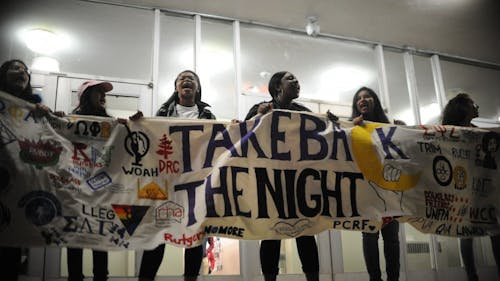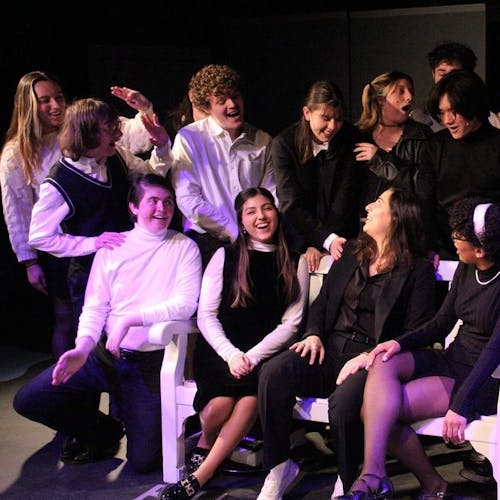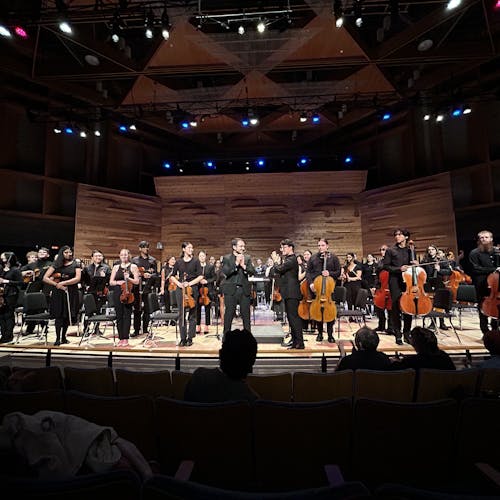New ‘disruption policy’ will change how students protest

After a semester of demonstrations, marches and protests that drew national attention to the Rutgers campus, the University has updated its demonstration policy.
The eruption of free expression since the inauguration of President Donald J. Trump, in addition to annually held marches, led the Board of Governors to revise the free expression policy that had not been updated for more than 40 years, originally written in 1974.
This semester the Office of Student Affairs also rolled out a free expression pamphlet explaining what it calls the “rights and responsibilities” that come with on-campus protests, marches and demonstrations.
A major part of the policy change is the addition that states demonstrations should not "disrupt" University operations.
What is unclear about the policy is how far the “disruptions” label will extend. The term is vague and doesn’t say whether it will only apply to major University operations, such as blocking roads, or if it will trickle down to class walkouts.
The free expression pamphlet gives examples of disruptions as blocking access to University buildings and obstructing movement around campus. This would make many of the peaceful demonstrations that took place last semester against the rules.
Additionally, the right to demonstrate is only permissible in public spaces unless you have a granted exception, leaving out private offices or meeting spaces with already planned events, according to the pamphlet. This amendment would have made the sit-in at last December’s Board of Governors meeting and the Milo Yiannopoulos counter-protest against the rules.
Although members of the University may find the review of the free expression policy sudden, it was a necessary revision, Vice Chancellor Felicia McGinty said at this year’s Student Affairs Student Leader Welcome.
University spokesperson Karen Smith also told NJ.com that the updates "were made as part of a periodic policy review."
McGinty said the refreshed free expression guidelines should not act as a barrier for any group expressing their freedom of speech on campus and should make it easier for members of the University to organize with a section in the pamphlet about how to work with the Office of the Dean of Students and other resources at the University.
But former president of the Rutgers AAUP-AFT faculty union David Hughes called for the University to reverse the policy, telling NJ.com that the free expression guidelines will “curtail” freedom of speech and expression.
McGinty emphasized at the Student Affairs Student Leader Welcome that stifling freedom of speech or the right to protest was not the intention of any policy changes and said that demonstrations are not being banned from the University campus.
A major concern of the policy change, McGinty said, was safety. Because the policies had not been reviewed in about 40 years, they did not properly take into account how to work with the University administration to reserve spaces or organize with campus police and were not savvy to the recent use of vehicles to terrorize large groups of people.



